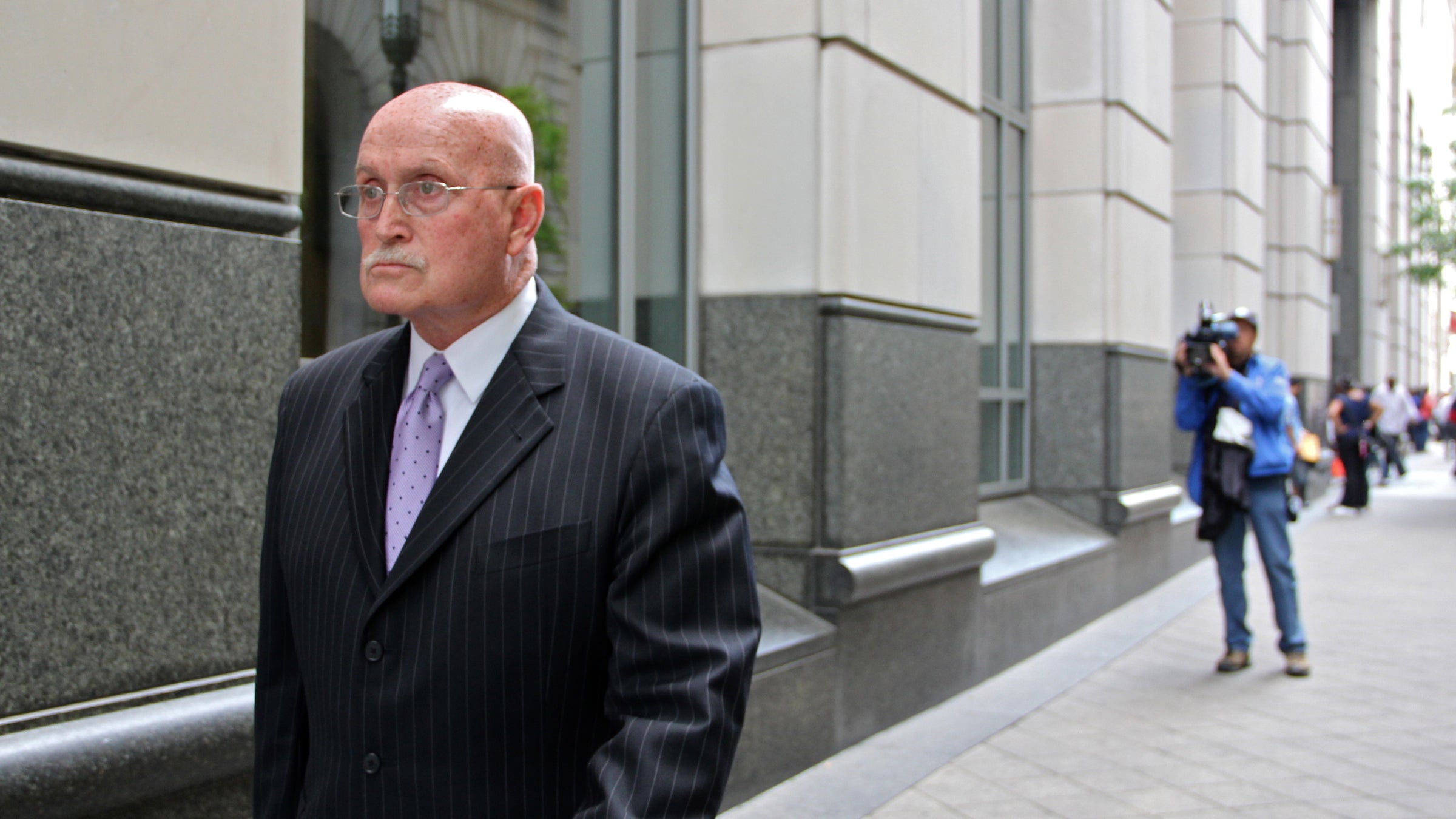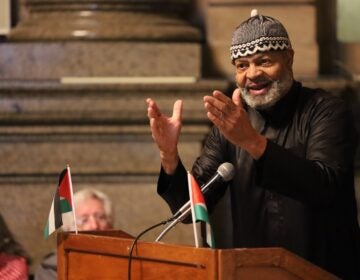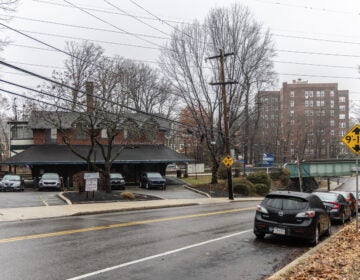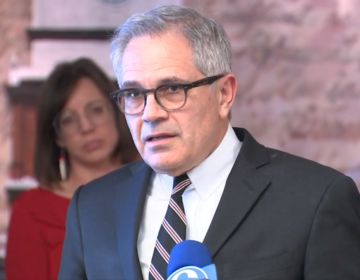Philly attorney McMahon’s advice on striking jurors figures in case before U.S. Supreme Court

Defense attorney Jack McMahon leaves the Philadelphia Criminal Justice Center. (Emma Lee/WHYY file photo)
As the U.S. Supreme Court hears arguments on whether jury selection in a Georgia murder trial systemically excluded African-Americans, one Philadelphia name keeps popping up again and again: defense attorney Jack McMahon.
In a now-infamous training video, McMahon, who was then an assistant district attorney, instructed new prosecutors that “blacks from low-income areas are less likely to convict,” and that “you don’t want those people on your jury,” an assessment that he says may appear to be racist but really, he says, it’s “just being realistic.”
In national stories about the case now in front of the high court, McMahon’s comments are trotted out as evidence of a tainted system. And in an amicus brief filed with the court, attorneys retold the tale of the video with the introduction “prosecutorial race discrimination is sometimes frighteningly overt.”
Looking back at the video after nearly three decades have passed, McMahon said the clips were isolated out of context.
“It was a great example of not reading the whole video tape,” McMahon said. “It never talks about the whites I wanna strike. They just isolated the black portion. If you listen to it in totality, it’s just not true.”
That is, it’s not true that his comments were purely racist, as some have claimed over the years.
Back then, he said, he advised nixing certain white jurors just as often as striking some black ones.
“Is it racist to say that I didn’t like, at the time when I was a prosecutor, rich, intelligent people from Chestnut Hill? Is that racist?” he said.
The timing of his off-the-cuff remarks to the fresh-faced assistant district attroneys was no coincidence. It came shortly after the landmark Supreme Court case Batson v. Kentucky in which the court held that a juror can’t be booted based solely on race. Prosecutors were still processing the decision and trying to sort out how it would apply to real-world cases.
Defense attorneys say the Batson rule is often weak in courtrooms because of what they see as its tragic flaw: It allows leeway for a prosecutor accused of racial discrimination to offer a “race neutral” reason for the striking, such as the juror didn’t graduate from high school, had a bad experience with police in the past or that the potential juror vacillated too much during questioning.
“As a practical manner, Batson has in effect been emasculated by just the ability by prosecutors to give race-neutral reasons,” McMahon said. “You don’t even make them any more, because they’re fruitless.”
Still, McMahon defends his controversial comments by arguing that winning convictions drives prosecutors. Say, for instance, a prosecutor is trying a drug possession case and the DA is relying on police officer testimony.
“Well, obviously the demographics of African-Americans, they have seen in their communities more cops lie, they’ve seen what cops can do. So that demographic is less accepting of police officers’ testimony,” McMahon said. “So if you have strikes, you’re obviously going to strike them.”
Other Philadelphia defense attorneys, including Paul Hetznecker, are closely watching the Georgia case, where an all-white jury convicted a black man of the murder of a 79-year-old widow in 1987. Still sitting on death row, he now says prosecutors intentionally removed four eligible black jurors, therefore violating the Batson rule.
There’s a chance the court can strengthen the Batson case so that prosecutors can’t cite a random reason for striking a black juror, Hetznecker said.
“We care about this, I think, because we struggle with this every day,” he said. “We struggle with racially biased juries and a selection process that’s slanted against our clients.”
When an entire group is excluded from the criminal justice process, he added, it should come as no surprise that they would have little trust of the system.
“I think we have been as a country, as a society, in denial over the tremendous impact institutional racism has had in the criminal justice system from start to finish,” Hetznecker said. “Any effort to attack that is a worthy one.”
Asked what he makes of his old comments being revived in light of the Supreme Court case, McMahon said, “I can’t escape it.”
“If they wanna use it to help this guy get off death row, I’m all for it,” he said.
WHYY is your source for fact-based, in-depth journalism and information. As a nonprofit organization, we rely on financial support from readers like you. Please give today.




